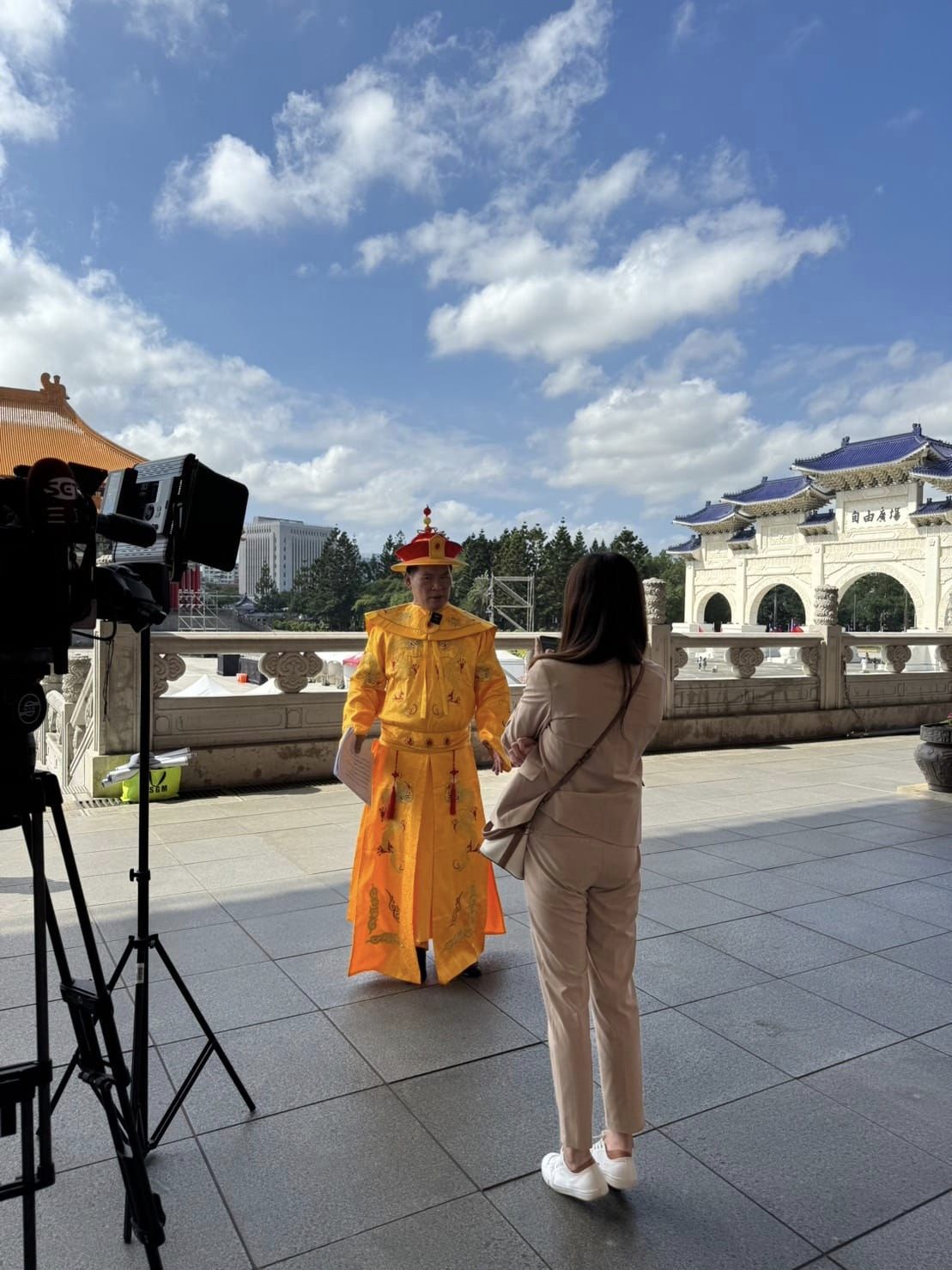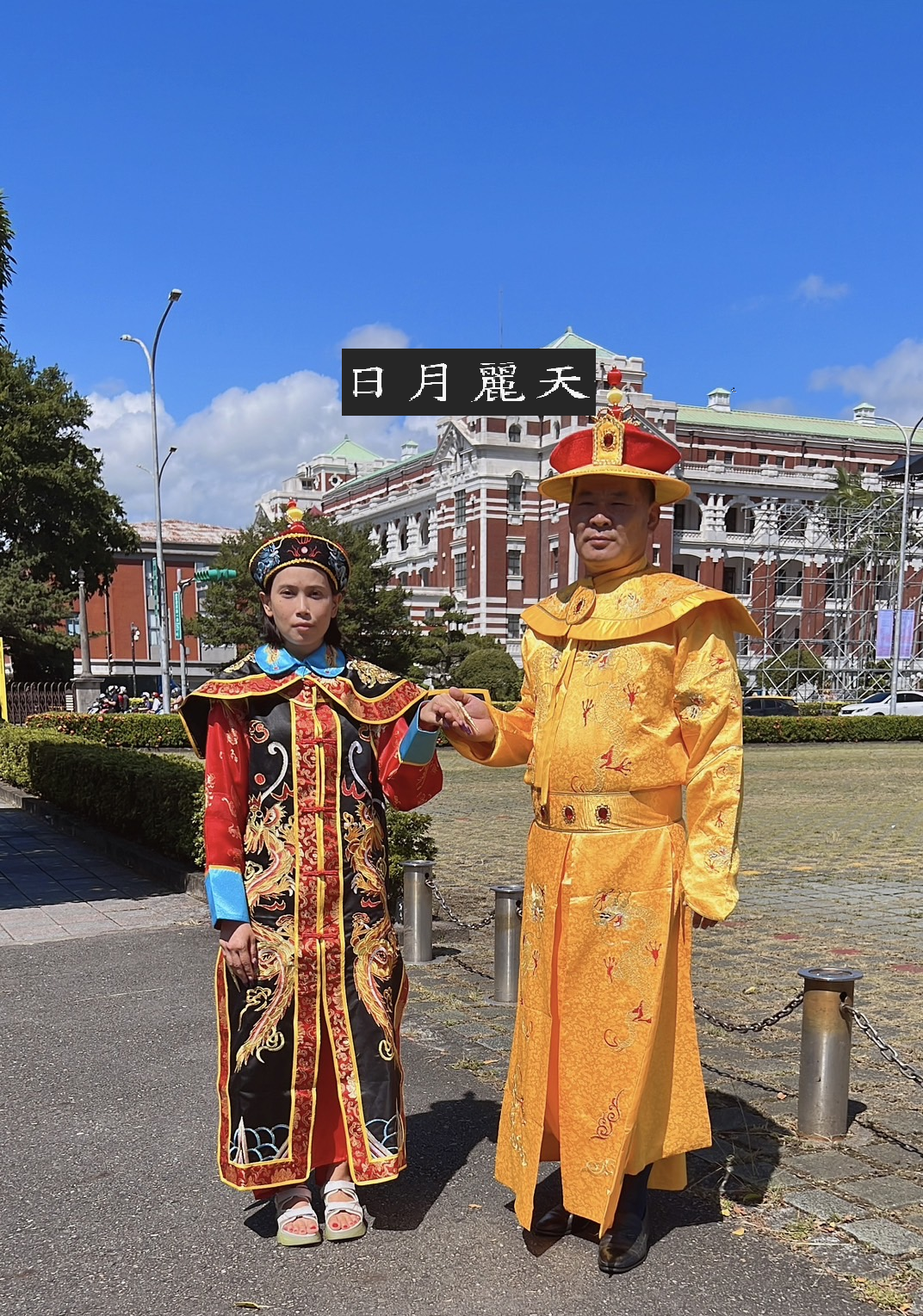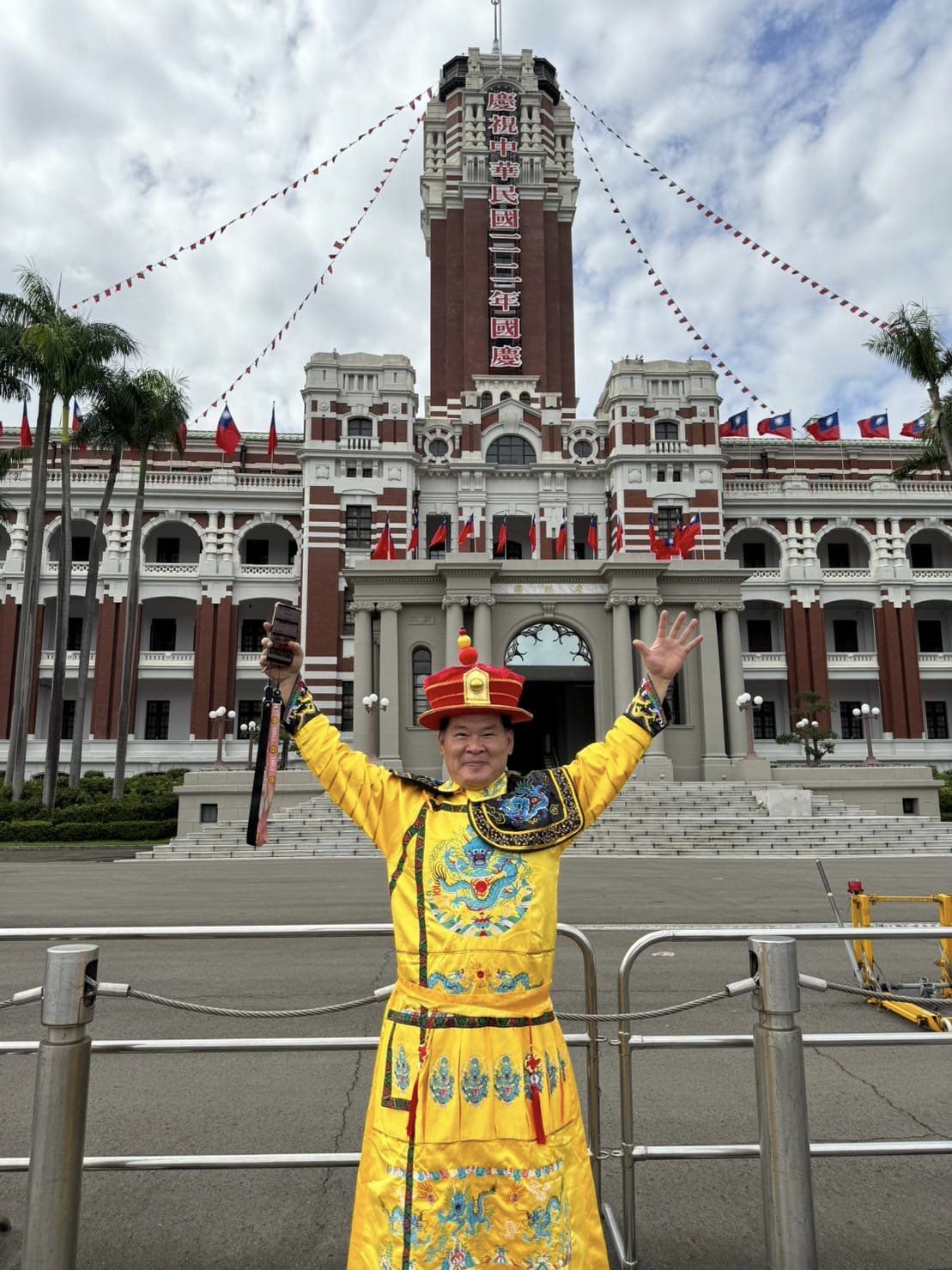by Brian Hioe
語言:
English
Photo credit: 藍信祺/Facebook
ALTHOUGH IT IS not actually the first time that he has run for president, the presidential run of former convicted murderer Lan Hsin-qi (藍信祺) has drawn attention in recent days.
Lan, who first began to run for president in 2011, murdered two men thirty years ago in 1981. Lan killed the two men, surnamed Wang and Chung, over past incidents in which they had extorted money from him. After the bodies were washed up by rain, police sought Lan for arrest.
But Lan then avoided capture for several years using a fake identity. He was arrested after attempting to help two friends break out of the Taipei Juvenile Detention House in Tucheng, by visiting the detention center with a handsaw in February 1982.

Photo credit: 藍信祺/Facebook
Ironically, Lan then later broke out of jail himself in November 1982, and again evaded police until 1985. Lan was later caught and sentenced to thirteen years in jail, but was released on parole in 1992.
It is possible that Lan’s jail stint radicalized him., He was later arrested in 1992 on charges of smuggling 6,000 air guns, which he claims was for civil defense training. Lan was again arrested in 1993 after attempting to detonate a gasoline canister, to start a “war to liberate Taiwan.”
Since 2011, he has sought to run for president. This involved a number of colorful claims, such as labeling himself “World Emperor of Taiwan” (世界臺灣皇帝), and “Original Universe Black Dragon God” (宇宙原體黑龍上帝). Past campaigns by Lan have included calling for state-arranged couples at age 15, which would then lead to the start of state-arranged dating at 21, and state-mandated marriage at age 27. Lan also called for the opening of nudist parks in Taiwan, claimed that those who did not vote for him would be killed, called for the assassination of President Tsai Ing-wen, and asserted that he was the creator of the universe and its only legally recognized monarch.

Photo credit: 藍信祺/Facebook
Lan, then, clearly seems to be someone who is mentally ill, but who somehow has the financial capacity to field fringe presidential runs. However, Lan has been criticized primarily in past days by legislators because of his history of criminality. This perhaps reflects attitudes toward crime in Taiwan, as well as mental health in Taiwan, in that there are more frequently social criticisms on the basis of criminality and wrongdoing than calls for rehabilitating individuals. Similarly, for individuals who commit violent crimes, there is a lack of trying to understand the social circumstances that drive them to crimes–sometimes desperation, at other times mental illness.
To this extent, it is hardly as if Lan is the only individual in Taiwanese politics with a history of gang-related murder. China Unification Promotion Party head “White Wolf” Chang An-le is another such individual, with Chang rumored to have previously been the “godfather” of the Bamboo Union Alliance, and having conducted political assassinations for the KMT in the 1980s. Since his release from jail in the US and his return to Taiwan after some years spent in China, Chang has reinvented himself as a pro-China politician.

Photo credit: 藍信祺/Facebook
The magistrate of Miaoli County, Chung Tung-chin, also has a history of gang-related killings. Criminal charges against Chung show that he and six associates beat a man surnamed Hu to death in a Taipei restaurant in May 1987. Consequently, Chung served three years and eight months in jail.
This did not prevent Chung from serving as county councilor from 2014 to 2018 and then becoming council speaker in 2019. This occurred as a KMT politician. But with his criminal record suddenly exposed to the public in the 2022 election cycle, Chung refused to drop out of the race despite being called on to by the KMT, DPP, and NPP alike. Chung eventually won as an independent.
This, then, is what the spectacle of a candidate with past murder charges reveals–the significant extent to which gang-related killings have been a substrate of Taiwanese politics.



